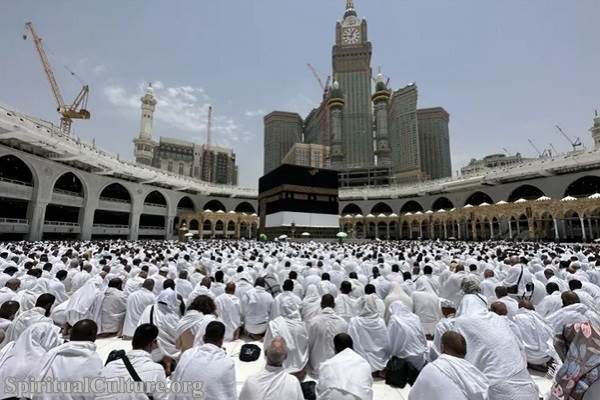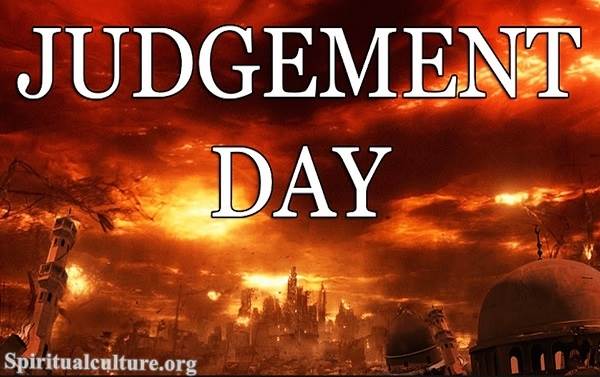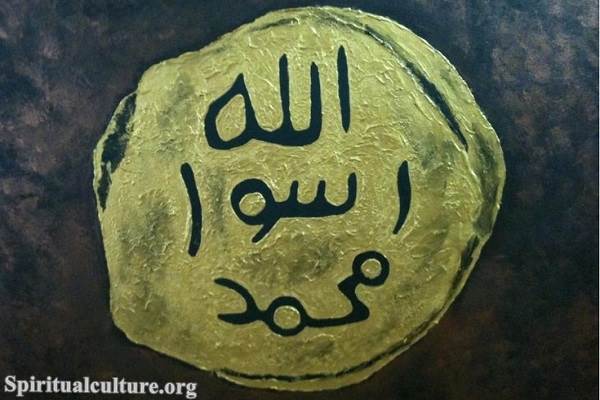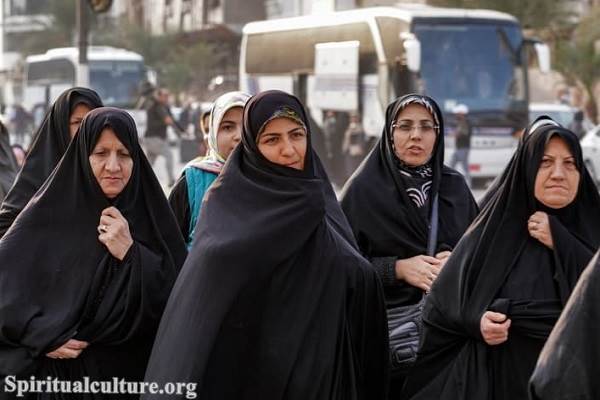I. Some about Islam
Islam is a monotheistic religion founded in the 7th century by the prophet Muhammad. It is based on the teachings of the Quran and the Hadith, the primary sources of Islamic doctrine.
Muslims believe that there is only one God (Allah) and that Muhammad is the last in a line of prophets, including Abraham, Moses, and Jesus.
Islam is the second-largest religion in the world, with over 1.8 billion followers.

Muslims follow the Five Pillars of Islam, which are the core practices of the faith. These include the shahadah (profession of faith), salat (prayer), zakat (charity), sawm (fasting), and hajj (pilgrimage to Mecca).
Islam is a religion that promotes peace, justice, and equality and encourages its followers to live a righteous and ethical life.
II. Basic beliefs and practices of Islam
Islam is a monotheistic religion that is based on the belief in one God (Allah in Arabic) and the teachings of the prophet Muhammad.
Muslims believe that God revealed the Qur’an to Muhammad and that it is the word of God as revealed to Muhammad through the angel Gabriel.
The central beliefs of Islam include the belief in the oneness of God, the belief in angels, the belief in prophets, and the belief in a final judgment. Muslims also believe in predestination or the idea that God wills everything that happens.
Muslims follow a set of practices and rituals designed to bring them closer to God and live their lives according to his teachings. These practices are known as the Five Pillars of Islam.
In addition to these practices, Muslims are also expected to follow certain moral and ethical principles, such as honesty, fairness, and respect for others.
Here are a few more practices and beliefs of Islam:
- Qur’an: Muslims believe that the Qur’an is the word of God, revealed to Muhammad through the angel Gabriel. They consider it to be the most important source of guidance for their faith and daily life.
- Halal: Halal refers to anything that is permissible under Islamic law. This includes food and drink but also applies to other aspects of life, such as business practices and personal relationships.
- Ramadan: In addition to fasting during the month of Ramadan, Muslims also engage in other religious practices during this time, such as increased prayer and charity.
- Eid al-Fitr: At the end of Ramadan, Muslims celebrate Eid al-Fitr, a three-day holiday that involves prayer, gift-giving, and other festivities.
- Eid al-Adha: Another major holiday in Islam is Eid al-Adha, which commemorates the willingness of the prophet Abraham to sacrifice his son at God’s command. This holiday is marked by the sacrifice of animals and the distribution of meat to the poor.
- Jihad: Jihad is often misunderstood as “holy war,” but it actually refers to the struggle to maintain obedience to God and resist temptation. This struggle can be personal, such as the struggle to overcome one’s desires, or it can be external, such as defending one’s community against injustice.
Islam also has a strong emphasis on social justice and the belief in the equality of all people. Muslims are expected to be moral people and treat others with kindness and respect.
III. 6 main beliefs of Islam
There are six main beliefs in Islam, which are known as the six articles of faith:
1. Belief in one God (Allah) in Islam
Belief in Allah is a fundamental belief in Islam and is considered to be the first of the six articles of faith. Muslims believe that Allah is the one and only God, who is the creator and sustainer of the universe. They believe that Allah is omnipotent, omniscient, and omnipresent and that he is the only one who deserves to be worshipped.
Muslims believe that Allah has revealed his will and guidance to humanity through prophets, such as Abraham, Moses, and Jesus, and that the final and complete revelation of God’s will is contained in the Qur’an. They also believe that Allah is merciful and just and that he will judge humanity on the day of judgment based on their deeds and actions.
Muslims must believe in Allah and submit to his will as a central tenet of their faith. They are also required to perform the five pillars of Islam, which include professing faith in Allah, praying five times a day, giving alms to the poor, fasting during the month of Ramadan, and making a pilgrimage to Mecca at least once in their lifetime. These practices are meant to help Muslims strengthen their relationship with Allah and to live their lives according to his teachings.
Muslims believe that there is only one God, who is omnipotent, omniscient, and omnipresent.
2. Belief in the angels in Islam
Muslims believe in the existence of angels, who are considered to be beings created by God to serve as intermediaries between God and humanity. According to Islamic tradition, angels are pure, spiritual beings who do not have free will and are completely devoted to carrying out the will of God.
Many different angels are mentioned in the Qur’an and in Islamic tradition, and each has a specific role and purpose. Some of the most well-known angels include Gabriel, who is believed to have revealed the Qur’an to the Prophet Muhammad; Michael, responsible for protecting and helping believers; and Azrael, responsible for taking the souls of the dead.
Muslims believe that angels play various roles in the world, including helping and guiding people, carrying out God’s will, and recording people’s actions. They also believe angels are always present, watching over and protecting believers. In addition, Muslims believe that angels will be present on the day of judgment to testify to people’s deeds and help determine their ultimate fate.
3. Belief in the prophets in Islam
Belief in the prophets is a fundamental belief in Islam and is considered one of the six articles of faith. Muslims believe that God has revealed his will and guidance to humanity through prophets, considered to be special individuals chosen by God to teach people about him and guide them to the right path.
According to Islamic tradition, many prophets have existed throughout history, including Abraham, Moses, and Jesus. However, Muslims believe that Muhammad is the final and most important prophet, as he received the final and complete revelation of God’s will in the form of the Qur’an.
Muslims believe that the prophets were sent to teach people about God and to guide them to live their lives according to his teachings. They also believe that the prophets were human beings who God chose to serve as examples of how to live a righteous and godly life. Muslims are required to believe in all the prophets and follow their teachings as a central tenet of their faith.
4. Belief in the holy books of Islam
Belief in the holy books is a fundamental belief in Islam and is considered one of the six articles of faith. Muslims believe that God has revealed his will and guidance to humanity through holy texts, considered sacred and divinely inspired.
Islam’s most well-known holy book is the Qur’an, which is considered the final and complete revelation of God’s will. Muslims believe that the Qur’an was revealed to the Prophet Muhammad by the angel Gabriel over a period of twenty-three years and that it contains the teachings and guidance of God for all of humanity.
In addition to the Qur’an, Muslims also believe in the authenticity and divine inspiration of other holy books, such as the Torah (revealed to Moses), the Psalms (revealed to David), and the Gospels (revealed to Jesus). However, they believe that these texts have been altered or distorted over time and that the Qur’an contains the most accurate and complete revelation of God’s will.
Muslims are required to believe in the holy books and to follow their teachings as a central tenet of their faith. They are also required to read, study, and recite the Qur’an to strengthen their relationship with God and learn about his will for their lives.
5. Belief in the day of judgment in Islam
Belief in the day of judgment, or Yawm al-Qiyāmah in Arabic, is fundamental in Islam. Muslims believe that on this day, all people will be resurrected and judged by God according to their beliefs and actions in this life. The day of judgment is believed to be a time of great suffering and turmoil, but it is also a time of great hope, as it marks the final determination of who will enter Paradise and who will enter Hell.
Muslims believe that the day of judgment will be preceded by the coming of the Dajjal, a figure often described as a false messiah or an Antichrist figure. The Dajjal is believed to be a figure of great power and deception who will attempt to lead people astray and turn them away from the true path of Islam.
The day of judgment is a central theme in the Qur’an and is mentioned in many hadiths or sayings and actions of the Prophet Muhammad. It is a day that all Muslims believe they will face, and it is a day that they strive to prepare for by living their lives in accordance with the teachings of Islam and striving to be good, righteous people.
6. Belief in predestination in Islam
In Islam, the concept of predestination, also known as predetermination or qadar, holds that all events and actions are predetermined by Allah and written in the divine decree or predestination. This belief is based on the idea that Allah is all-knowing and all-powerful and that he has ordained everything that happens in the universe.
Muslims who believe in predestination believe that Allah has complete control over all aspects of their lives, including their actions, thoughts, and circumstances. They believe that everything that happens to them is part of Allah’s plan and serves a greater purpose, even if they do not understand it at the time.
This belief does not mean that Muslims are passive and do not have free will. On the contrary, Islam teaches that humans can make choices and are responsible for their actions. However, the outcomes of those actions are ultimately determined by Allah.
Some Muslims may interpret the concept of predestination differently, and there can be some debate within the Muslim community about its implications. However, the belief in predestination is an important part of Islamic theology and is affirmed by the vast majority of Muslims.




